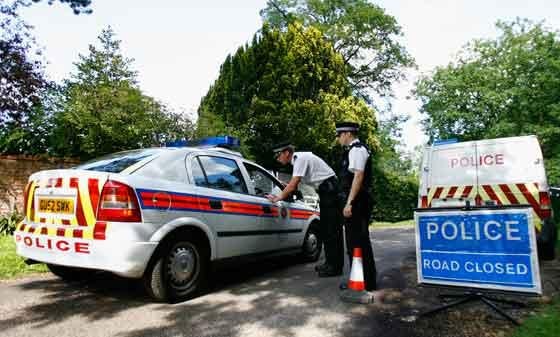
A photographer who was arrested, handcuffed and detained for eight hours when he tried to take pictures of a road accident has won more than £5,000 in damages and an apology from Thames Valley Police.
Police have also deleted the record of MK News photographer Andrew Handley and destroyed DNA samples and fingerprints they took from him when he was held.
Handley, a photographer for 34 years, was arrested by a sergeant as he tried to take pictures at the scene of the accident, at Stony Stratford, Milton Keynes, in September 2006.
He was behind the police cordon when he was approached by a police sergeant who demanded he handed over the pictures and his camera.
Both the law and guidance from the Association of Chief Police Officers make it clear that police have no powers to restrict or prevent the press from taking photographs.
But Handley was arrested, handcuffed with his hands behind his back, was cautioned, and held for eight hours at Milton Keynes police station, where his fingerprints and DNA samples were taken.
After his release he contacted the National Union of Journalists, which instructed its lawyers Thompsons Solicitors to claim compensation for unlawful imprisonment and assault.
Buckinghamshire Police Authority rescinded the caution, apologised for the unlawful arrest and after proceedings were issued settled the claim for £5,250.
NUJ legal officer Roy Mincoff said: “Our member was perfectly entitled to carry out his work by taking photographs of the accident. It is a worrying scenario when the police restrict media freedoms in unlawful ways.
“We will be monitoring the way in which our agreed guidelines on how the police should deal with the media are enforced and will continue to raise these issues with senior officers, government ministers and members of parliament.
“We will take appropriate action, including legal proceedings if necessary, if further breaches of the law occur.
“However, we hope that good practice will prevail in the future, with police officers at all levels being properly trained in, and regularly reminded of, the special role of the media as a public watchdog, recording and reporting events in the public interest.”
Nick Taylor of Thompsons Solicitors said: “Members of the media have a duty to take photographs and police officers have no legal power or moral responsibility to prevent or restrict what they record. The Association of Chief Police Officers’ guidelines on the press clearly state it is a matter for editors to decide what is published, not the police.”
Handley said: “This is not the first time a police officer has told me to stop taking pictures. I explained that I was entitled to do my job and assumed I would be allowed to continue. Instead I found myself with my hands cuffed behind my back and in a police cell.
“It’s a great relief that I’ve been cleared.”
Email pged@pressgazette.co.uk to point out mistakes, provide story tips or send in a letter for publication on our "Letters Page" blog


